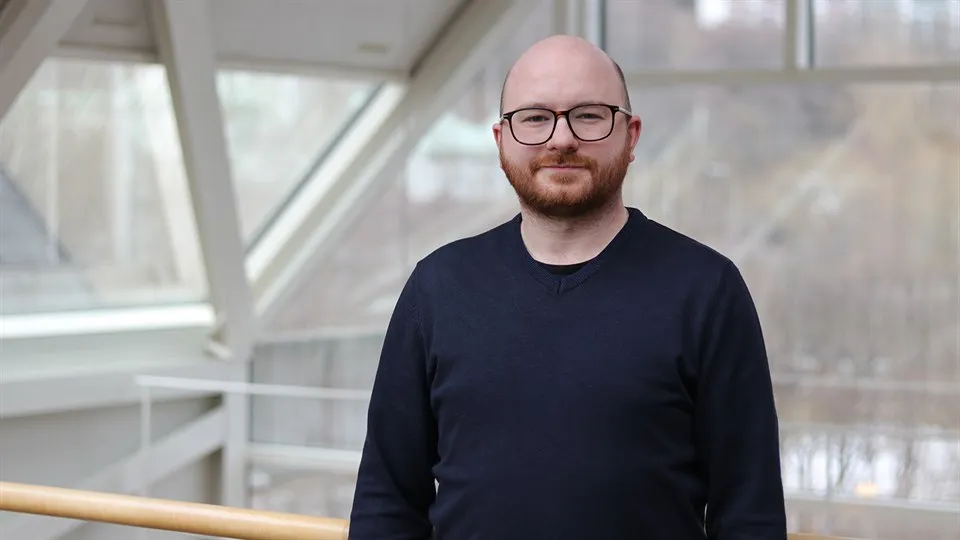‑ Exchange visits are quite important to get results faster which can be good in this very dynamic field
Dr. Jakub Nikonowicz is a researcher within the field of Digital Signal Processing from the Poznan University of Technology in Poland. At the end of March 2022, he visited Mid Sweden University to deepen cooperation with Prof. Mikael Gidlund and his research team at STC Research Centre.
Tell me a little bit about your background?
In general, my research is about statistical signal processing, with a focus on the detection of weak signals. That was also the topic of my PhD-thesis. My research fits into many different disciplines, such as radio communication, synchronization, and even hardware security. Prof. Mikael Gidlund and Dr. Aamir Mahmood are very active in radio communication and they, more or less, work with the same problems as I do, and we complement each other quite well.
You been to Mid Sweden University once before?
I was here five years ago as a PhD-student. It was within the Erasmus plus program that I got the opportunity to visit Mid Sweden University for six-months. That’s was when I first met with Prof. Mikael Gidlund and his team. During my visit, we created a simulator for parameterizing noise in an industrial environment. After my return home, we continued our cooperation as the topic was very promising, and we wrote two papers together. But then the pandemic rearranged everything, and I couldn’t keep up with my cooperation with Mid Sweden University. At the end of 2021, Aamir contacted me again and we started the discussion about how to continue our collaboration. That was when the idea come up to do a research visit for two weeks. A research visit is definitely more efficient than all of those online meetings. Our research topic is quite dynamic and it’s evolving fast, this requires more intense contact. During this visit, I got the opportunity to focus full time on my research, this is the best part!
What is the goal with your visit?
The current focus of our research is improving the accuracy of the positioning methods on 5G. And to do so, we need to do some more research, experiments, and simulations to get guidance on which direction of the development is most promising. There is extensive discussion about the physical aspects of the signal and methods to employ to achieve the goals of precise positioning. Based on time? Angle? Or some other kind of triangulation? This is an ongoing discussion, and to push it further it is some studies that we are trying to explore.
During my time here so far, we already had some meetings to discuss this and we will also do some simulations. Next week we will be able to describe it better and maybe publish a roadmap. We are doing a draft here and hopefully, it will be a valuable paper that can give people some hints on where to go within this field. But there will be a lot of work left to do when I get back to Poland.
What are the benefits of doing a research visit?
One benefit is the opportunities is to extend the network of researchers that you get in contact with. By the fact that I’m here, I get to meet a lot of other researchers that are experts in different fields. People here have other competence than me and we complement each other well. It is impossible to have all this competence by yourself which makes this cooperation very beneficial. Online meetings can be an efficient way to maintain contact and keep progress. But exchange visits are quite important to get results faster which can be good in this very dynamic field.
Have you experienced any difference between research here at Mid Sweden University and in Poland?
Poland is not that far away and we both have a western standard university. But one thing that comes to my mind is that I think that our teams and labs in Poland are more homogenous. A lot of people have the same background and work within the same field. The research team here has a more diverse background, I think it gives the team a wider look at some topics. Maybe this is one of the biggest differences.
